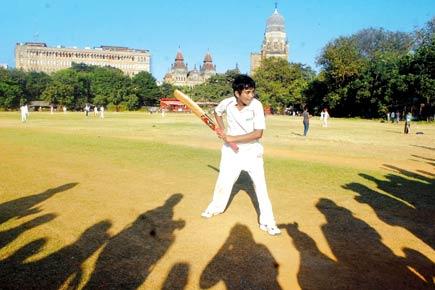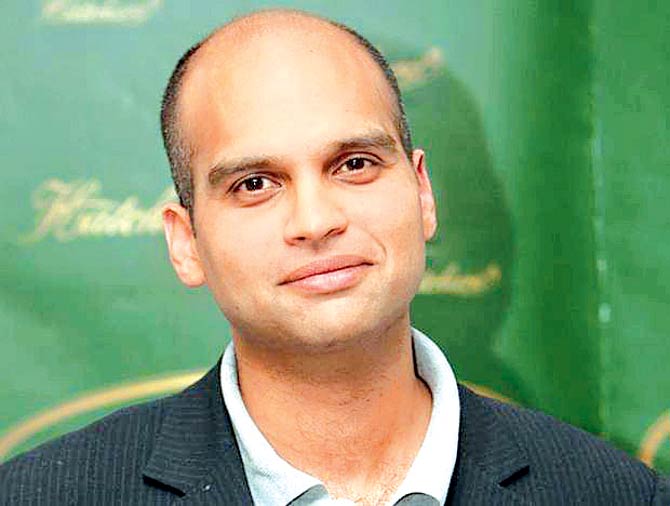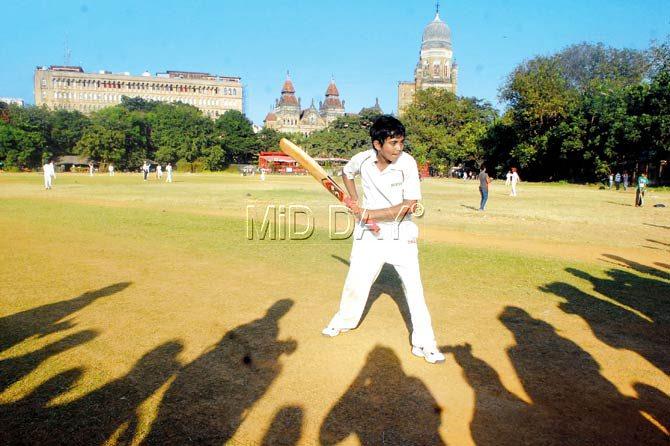Aravind Adiga's latest title, Selection Day, explores the seedy underbelly of cricket in Mumbai. In a freewheeling interview, he dissects the rot in the system, obsessive parents, his selection days, and finding proper shelf space at a Fort bookstore


Aravind Adiga
ADVERTISEMENT
What gave you the idea to write about cricket?
Today, in any Indian city, thousands of young cricketers are desperate to make it into the national cricket team or a major IPL team. From the time they are four or five years old, their whole life is nothing but cricket. They are told they must make the cut on selection day, or else there is no future for them and their families. In an unlikely way, their one-track upbringing was similar to my own. In the 1980s, when my brother and I were growing up in Mangalore, we were told every day that we had to do exceptionally well in our studies. We had to get a 100 percent, so we would get a 'merit seat' in engineering or medicine. Sports, friends, cinema — nothing else mattered. Both of us made the cut on our own selection day. In 1985, he stood second in Karnataka in the state-wide SSLC exam, and, five years later, I stood first. But when I look back on it, it seems like my childhood was robbed from me. In my own way, I went through a version of what Manju and Radha [two brothers who are central characters in the book] do.
The story looks closely at the city's cricketing system, from the parents to the coaches to the investors.
When you watch the way cricket is run in this country, do you think the people in charge care about the sport, the players, the spectators, or the future? I've loved cricket since I was a boy, but this doesn't blind me to the fact that it has become something grotesque now. If the rot starts at the top, with the people in charge, won't it go all the way
to the bottom?
Was Mumbai meant to be a central character?
Mumbai is always going to be the most interesting and exciting place in India. But when I compare the responses of entrepreneurs whom I meet in various cities in India, I find that the ones in Mumbai sound the most frustrated. Infrastructure, labour costs, political interference: everything seems to be conspiring to make life harder for the Bombay businessman. Whereas in Hyderabad or Bangalore, politicians roll out the red carpet for entrepreneurs and job creators. The geography of Mumbai — its maidans, train lines, parks — is a key element in Selection Day. But it is a geography both of opportunity and frustration.

Selection Day is the story of two brothers seeking to fulfill their father's wish that they become cricketers. Pic/Atul Kamble
You've introduced a romance happening between two unlikely young people. Did you want to bring in a love story?
Selection Day is the story of a young man's coming of age — and of what goes wrong in that process. By the end, Manjunath Kumar is a failure in two senses. He hasn't become a great batsman (possibly because he has sabotaged his own career); nor has he grown up to become, in a social or sexual sense, a man. Mohan Kumar as the father is one of the book's compelling characters. He is ruthless, superstitious and abusive. Yet, he seems very familiar. Mohan Kumar is a composite of many sporting fathers whom I've seen and met. He is ruthless, violent, and has a creepy obsession with the bodies of his two sons, and he is not likeable in many ways. But I hope I also showed the desperation that lies behind his actions, the intense desire — which we can all identify with — to overcome poverty and shape a better future for himself.
Do you look at India from the perspective of an insider or an outside, or both?
Henry James, the American writer, said that there is a kind of man who would be a foreigner in any country on earth, and sometimes I feel like one of those men. The day those people at Kitab Khana (Fort bookstore) finally put my novels in the 'Mumbai books' category, instead of the bizarre places they currently shove them in, I'll know I've become an insider at last.
These days, if you are critical of India, it results in a furore that calls into question everything from your patriotism to your self worth. Does this bother you?
Things have definitely deteriorated in the past two or three years. Think about it. A distinguished economist, a man who gave up a lucrative position to serve his country as governor of the RBI, is attacked by a demagogue on Twitter — and this ludicrous attack apparently gathers enough popular support to cost the governor a second term. This is the worst kind of McCarthyite witch-hunting, and I worry that Indian democracy has insufficient constitutional barriers to stop outbursts of popular outrage from trampling upon the rights of an individual. But this is still one of the most tolerant places on earth. I just have to remember the way The White Tiger was received here. In most countries, a book like that would have been banned. Here, it becomes a bestseller.
Would you want your books made into films?
I think I've been lucky that no one has yet filmed The White Tiger. It gives me a fighting chance to be remembered as the author of a series of books — not just one.
 Subscribe today by clicking the link and stay updated with the latest news!" Click here!
Subscribe today by clicking the link and stay updated with the latest news!" Click here!






